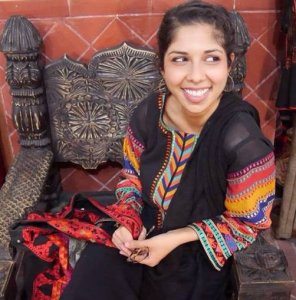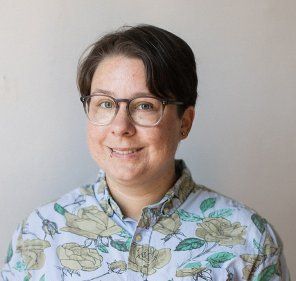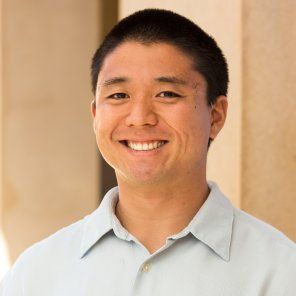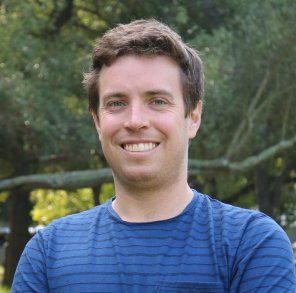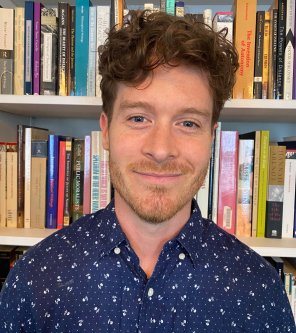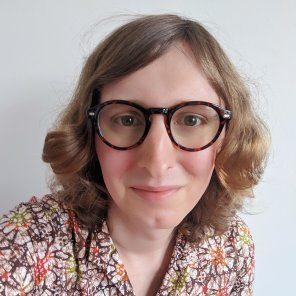New Dean’s Fellows Program supports H&S graduate students during turbulent times
With the academic job market affected by COVID-19, the School of Humanities and Sciences provides teaching and research opportunities for graduate students.
Doctoral students who either recently completed or are nearing completion of their dissertations now face an increasingly uncertain academic landscape in the wake of COVID-19. To help mitigate the effects of the pandemic on the academic job market for these scholars, Stanford’s School of Humanities and Sciences has launched the Dean’s Fellows Program. The program provides one-year lecturer appointments; this fall, nine graduates from across the school will support teaching and research initiatives.
“Our graduate students face a challenging academic job market as universities recalibrate their searches for the next few years in light of COVID-19,” said Debra Satz, Vernon R. and Lysbeth Warren Anderson Dean of the School of Humanities and Sciences. “H&S, with support from Provost Drell, created the Dean’s Fellows Program as a way of supporting some of our exceptional doctoral students. Fellows will contribute leading research and teaching for the next generation of students or otherwise bring their skills to bear on making a difference to our understanding and knowledge.”
The program includes workshops to help the fellows advance their career goals and teaching roles. This year’s fellows are from the following departments: Modern Thought and Literature, History, Biology, Sociology, Classics, English, and the Division of Literatures, Cultures, and Languages (DLCL).
“This program also supports the school’s undergraduate teaching initiatives, both during this challenging year and in planning for the long term,” Satz said. The school hopes to be able to provide 20 additional fellowships next year as the stress on the academic job market due to the pandemic continues.
Current fellows will participate in teaching, including instruction for courses that meet core requirements or electives within a major, as well as opportunities to contribute to the development of capstone programs. A capstone requirement for all undergraduates is part of an initiative about the future of the major, which emerged from the university’s Long-Range Vision.
“It is envisioned that some of the dean’s fellows will partner with faculty to create a menu of possible capstone experiences appropriate to their fields of interest,” said Mary Beth Mudgett, senior associate dean for educational initiatives in the School of Humanities and Sciences.
“I am very excited by the opportunity to serve as an H&S dean’s fellow this upcoming year,” said Jeffrey Smith, a fourth-year doctoral candidate in biology. “I have been so impressed by the undergraduate students in the biology department. Having an opportunity to help design the senior capstone experiences, a core part of the undergraduate experience, will be immensely rewarding.”
Given the demands of the upcoming four-quarter academic year, the fellows will work with the chairs of their departments to contribute to the department’s course offerings. That work might include designing a new course or modifying an existing one.
With most instruction for the coming year being offered remotely, the fellows will be encouraged to learn and implement effective online teaching strategies and to foster an inclusive and equitable learning environment.
“The Stanford Center for Teaching and Learning will be a valuable resource for the fellows to advance their teaching skills,” Mudgett said. “They will also collaborate with their peers in regular workshops to learn and apply teaching techniques to better support students and meet learning goals, and develop their teaching and research portfolios to be competitive candidates on the job market.”
In addition to teaching, the fellows will have time to conduct independent research and utilize Stanford resources to advance their own work. For example, along with teaching, Smith will continue his research examining the impacts of human land use on biodiversity.
“Stanford has been a wonderful home for me over the past several years,” said Jared Furuta, a dean’s fellow. “Some of the most meaningful moments I've had here have been in teaching and working with the outstanding undergraduates who enrolled in my courses in the sociology department. I'm thrilled to be able to continue working with the undergraduate population for another year, and to also continue conducting research as part of Stanford's rich and exciting intellectual environment.”
2020-21 Dean's Fellows
Madihah Akhter earned her doctorate in history in 2020, with a minor in feminist, gender, and sexuality studies. Her research and teaching examine gender history in modern South Asia, the British empire, and the Muslim world. She has designed and taught courses on modern South Asian history, gender and feminist studies, comparative partitions, and South Asian immigration to the United States.
Additionally, Akhter remains committed to diversity, equity, and inclusion efforts in higher education. She spent five years working as a graduate mentor for the vice provost for education’s Enhancing Diversity in Graduate Education (EDGE) program and as a graduate mentor and residential coordinator for the Stanford-CCNY Exchange. As a dean’s fellow, Akhter plans to work on her manuscript-in-progress, titled, In Her Own Right: Sovereignty and Gender in Princely India. She will also teach two classes in the Department of History and Program in Feminist, Gender, and Sexuality Studies and help launch a new first-year undergraduate course on citizenship. She is looking forward to adapting inclusive and anti-racist pedagogy to remote learning classrooms.
Mateo J. Carrillo earned his doctorate in Latin American history in 2019. His research focuses on post-1940 Mexican migration and modernization. Specifically, Carrillo is interested in how rural industrialization, infrastructure, and environmental change intensified transnational Mexican migration and contributed to the racialization and criminalization of Mexican and Latinx mobility. His current article manuscripts explore the transformation of rural space and land tenure on small private and communal (ejido) landholdings in western Mexico.
As a dean’s fellow, Carrillo, along with colleagues from Stanford’s Center for Spatial and Textual Analysis (CESTA), will examine how the postwar urbanization of nominally agricultural ejido lands resulted in the production of landscapes of inequality on the periphery of Mexico’s second largest city, Guadalajara. As a lecturer in the history department, he looks forward to teaching Stanford’s diverse undergraduates and mentoring fellow Latinx and first-generation students.
Maria Cichosz is a novelist and scholar of literature, art, theory, drug cultures, and the history of ideas. Her interdisciplinary research aims to develop frameworks that re-contextualize histories of thought by mapping concepts across visual, literary, and new media contexts. Using a narrative methodology, she seeks to understand which forms of thought are possible at any given time, and how human beings use ideas and symbolic forms to make sense of historically situated experience.
Cichosz received her doctorate in modern thought and literature in 2020. Her first novel, Cam & Beau, will be published in fall 2020. As a dean’s fellow in the Department of Art & Art History, she will begin work on a cultural history of the interface between drugs, consciousness, and visual culture in postwar America. Her work will move beyond chemical definitions of drug experience to consider “drugs” as a broader category of mediation between bodies and societies, selves and worlds, and scientific and humanistic ways of knowing.
Jared Furuta's research examines how educational institutions are culturally constructed in response to broader social norms, conceptions, and assumptions. He has examined long-term changes in institutions such as national high-stakes exams, school tracking, and national assessments. In a related line of work, he has also studied how changing conceptions of meritocracy have shaped the rise of "test-optional" admissions policies in the United States. His recent work has been published in Sociology of Education and Social Forces.
As a dean’s fellow, he plans to explore how national high-stakes exams and tracking shape income inequality and economic growth around the world, as well as the determinants of long-term global trends in education reform. He will also teach courses on globalization, modern social theory, and formal organizations in the sociology department.
Kilian Mallon, who was born and raised in Dublin, Ireland, earned his doctorate in classical archaeology in 2019. He was a fellow at the Haas Center for Public Service in 2018–19 and was a lecturer in the classics department in 2019–20, where he taught Latin language and Roman social, political, and technological history. His research and teaching focus on the themes of materiality of technology, labor, economy, and politics in the ancient Mediterranean under Roman rule.
During his fellowship year, he will be building a team to conduct excavations of a late Roman settlement on the Black Sea, with the aim of breaking ground in the summer of 2021. Mallon is interested in marginal areas of the Roman Empire as case studies for exploring questions of long-term sustainability such as how local communities built and maintained resilience to environmental and political change over generations. He will be teaching a class on the mythological origins of the city of Rome and a new course that he developed, which will examine theories of long-term socio-political change using case studies from the pre-Roman Mediterranean.
Alyson Melzer researches ancient Graeco-Roman culture, specializing in the history of verbal art, performance, music, pedagogy, and aesthetics. Melzer earned her doctorate in 2020 in classics, language, and literature. While at Stanford, she enjoyed teaching a wide range of subjects from mythology to intermediate Greek language and beginning Latin.
This year, she will begin work on a manuscript based on her dissertation, titled, The Somatics of Style: The Body in Ancient Greek Theories of Verbal Art, which explores the centrality of the physical body to conceptualizations of literary language and style in Graeco-Roman antiquity. Her other current research projects include a study of gender in ancient Greek and Latin literary theory, and comedic sound effects in 5th-century-BCE Greek comedy. As a dean’s fellow, Melzer is excited to be based in the Department of Classics where she will teach Greek history and biblical Greek, help create a new capstone experience for Classics majors, and coordinate the department’s new outreach program, which is being designed to make the ancient Mediterranean more accessible and exciting to a wide public audience.
Jeffrey Smith works both with Stanford’s Natural Capital Project and the Center for Conservation Biology on understanding the impacts of human land use on biodiversity. His primary research focus is understanding how the conversion of natural habitats to human uses, either agricultural or residential development, impacts biodiversity. Smith principally studies insect biodiversity, but he also regularly considers patterns of plant diversity and bird diversity, given their importance in food webs and ecosystems. He studies these impacts using classical field research methods, emerging lab-based genetic techniques, and computer models.
Recognizing the need to scale local results to scales that are relevant for management and policy decisions, Smith seeks to complement empirical work with spatial models of biodiversity, including the distribution of species, the spatial patterns of habitat types, and variability in ecosystem structure. This work pulls both from primary data collected in the field as well as publicly available data and spans spatial scales from national to regional to global. As a fellow, Smith will be helping to design new courses to engage biology undergraduates through innovative and interactive methods.
Mark Taylor studies the literature and intellectual history of Britain in the 19th century. He received his doctorate in English in 2019. Since then, Taylor has served as a lecturer in English and as coordinator for the department’s program in conjunction with Stanford’s Public Humanities Initiative. Mark’s manuscript in progress, The Gospel of Freedom: Agency and Idealism in Victorian Literature, explores the neglected history of idealism in 19th-century British culture, putting literary texts in conversation with contemporary works of philosophy, political theory, natural science, and cultural criticism.
Taylor will work with undergraduates in both in the English department and in the university’s new Civic Education and Global Citizenship Core program.
Ruth Wurl is a scholar specializing in 19th-century Russian literature, the influence of German philosophy in Russian intellectual history, Yiddish language in the Soviet Union, gender studies, and queer theory. Her dissertation, Writing Women: Gender, Alterity, and Representation in Nineteenth-Century Russian Realism, examines how male authors came to identify, albeit in a self-interested way, with femininity and the women's movement through writing literary fiction.
As a dean’s fellow, Wurl is excited to teach a survey of Russian Romantic fiction and a Russian-language course on internet-based political activism. Additionally, she will be using her time as a fellow to begin a new research project on Alexander Alexandrov/Nadezhda Durova, a war hero and Russia's first trans writer. She also will be working to complete an ongoing photographic project documenting images of public spaces and markets in the former Soviet Union.
